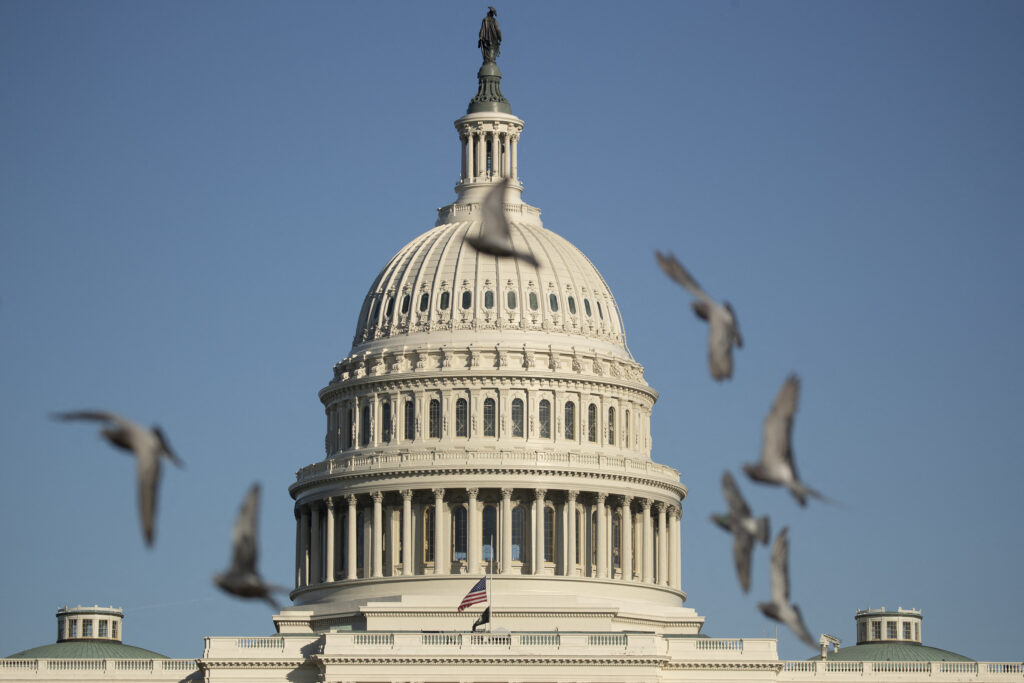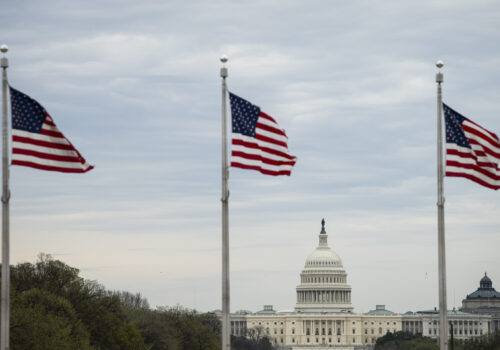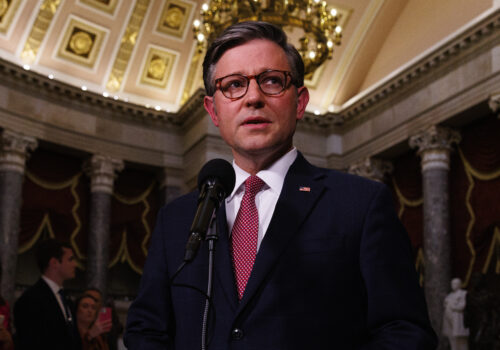JUST IN
Help is (finally) on the way. The US House on Saturday approved $60.8 billion in aid for Ukraine in its fight against Russian aggression, after months of delays that have seen Russian gains on the ground. The bill, part of a four-piece national security package put forth by House Speaker Mike Johnson over the objections of his right flank, now goes to the Senate, which easily passed a similar version in February. What difference will this aid make for Ukraine’s fight? What do Ukraine and other European nations make of the delay—and the resolution? Checking in from Washington, Kyiv, and Rome, our experts sort it out.
TODAY’S EXPERT REACTION BROUGHT TO YOU BY
- John E. Herbst (@JohnEdHerbst): Senior director of the Atlantic Council’s Eurasia Center and former US ambassador to Ukraine
- Peter Dickinson (@Biz_Ukraine_Mag): Kyiv-based editor of UkraineAlert
- Rachel Rizzo (@RachelRizzo): Nonresident senior fellow at the Atlantic Council’s Europe Center
The battlefield impact
- With a vote of 311 to 112—with Republicans split on the issue and Democrats, many of whom were waving Ukrainian flags, all in favor—the House ended months of debates about the fate of the aid, putting it on a glide path to becoming law. “The Kremlin greeted the delay—and the uncertainty regarding the aid’s future—as a victory because without US weapons, Ukraine would likely be conquered,” John tells us.
- Filing from Ukraine, Peter reports that Russia has taken advantage of the delays to launch “a series of grinding offensives” in Ukraine’s east and “a major new bombing campaign targeting Ukraine’s civilian infrastructure.” Ukrainian commanders, he says, will most urgently use the aid to “plug growing gaps in the country’s dwindling air defenses”—protecting both troops and civilians.
- John notes that Ukraine has rationed its artillery shells over the past four months, leading to the capture of the town of Avdiivka and other Russian gains. Aside from air defenses such as Patriot missiles, a fresh injection of shells “will have an immediate, positive impact on the course of the war,” John says.
- And John points out that the bill also pushes the administration to send three-hundred-kilometer range ATACMS, a missile system that can strike behind Russian lines but “the Biden administration had long refused to provide for fear of Kremlin ‘escalation.’ There are indications that this reluctance is changing. That would be a very good thing.”
Subscribe to Fast Thinking email alerts
Sign up to receive rapid insight in your inbox from Atlantic Council experts on global events as they unfold.

The mood in Ukraine
- For months, Ukrainians had watched the deadlock in Congress with “mounting dismay,” Peter tells us, as they became intimately familiar with American political dynamics and arcane congressional procedures. “This apparent loss of geopolitical clarity fed a sense of international isolation and abandonment that helped to further undermine Ukrainian morale” amid a series of battlefield setbacks, he says.
- But today’s vote—assuming it’s followed, as expected, by swift Senate passage and President Joe Biden’s signature—provides “a much-needed psychological boost” among troops and civilians alike, Peter says.
- “Ukrainians will once again have faith in the resolve of their country’s partners,” Peter adds, “and will be able to look ahead with a degree of confidence that has recently been lacking.”
What Europe should know
- Former President Donald Trump, the Republicans’ presumptive nominee for the post once again, has not come out directly against the Ukraine aid bill—but has been skeptical of such aid and asked in a recent social media post: “Why isn’t Europe giving more money to help Ukraine?”
- The European Union, in fact, just authorized another $54 billion for Ukraine in February. And Rachel, filing from Rome, says European leaders need to do a better job of telling that story on Capitol Hill between now and November’s election: “Hard numbers are key. Lists of military contributions are key.”
- But there’s no guarantee that more money will flow from the United States to Ukraine after this tranche of aid, particularly if Trump wins. In that case, Rachel says, “European allies (looking at you, Germany) must get used to the idea that as hard as it may be, they may end up being the ones responsible for helping Ukraine toward its ultimate victory.”
Further reading
Tue, Mar 26, 2024
Is the US Congress finally poised to pass Ukraine aid?
UkraineAlert By Doug Klain
After almost eight months of deadlock, the US Congress may finally be moving toward a political solution that can unlock desperately needed US aid for Ukraine, writes Doug Klain.
Fri, Apr 19, 2024
Failure to support Ukraine now would be ‘geopolitical malpractice’
Inflection Points By Frederick Kempe
The US House should approve additional aid to Ukraine this coming weekend, and President Joe Biden should send Kyiv the weapons it needs.
Thu, Apr 18, 2024
Your primer on the US House security bills for Ukraine, Israel, the Indo-Pacific, and more
Experts react By
Our experts share their insights on what’s in the pending legislation and why it matters for US national security.
Image: Birds fly in front of the United States Capitol Building in Washington, DC, USA, October 21, 2021. Photo by Michael Reynolds/Pool/ABACAPRESS.COM The House of Representatives voted to hold former White House strategist in the Trump administration, Stephen Bannon, in criminal contempt of Congress for refusing to comply with a subpoena issued by the House Select Committee on the January 6 Attack.



